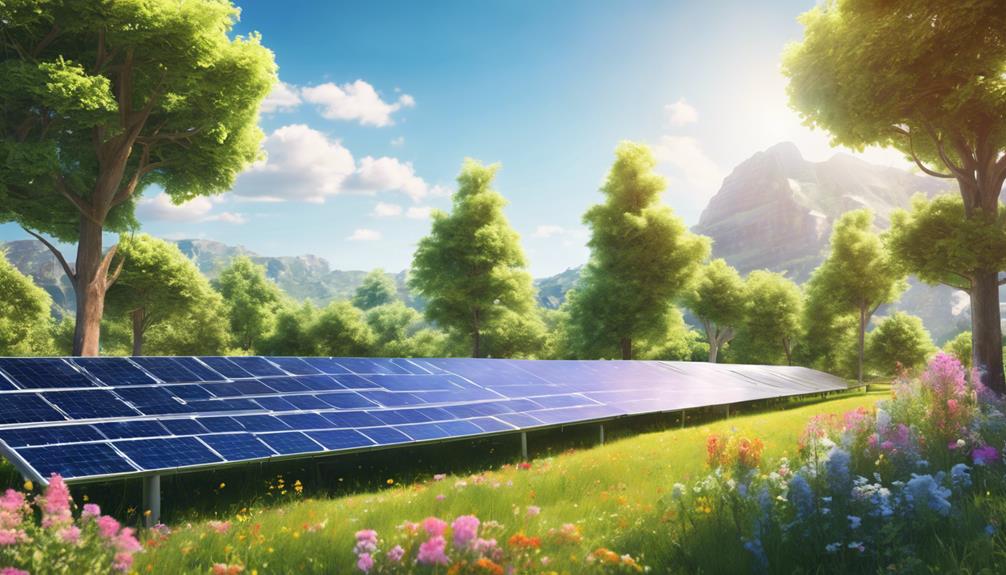
In recent years, the interest in renewable energy sources has surged, and one of the most popular solutions for off-grid power is solar energy. Among the various solar options available, solar panels for 12 volt systems have become increasingly popular for their versatility and efficiency. Whether you are looking to power a small cabin, RV, or marine application, understanding solar panels for 12 volt systems is crucial. This comprehensive guide will cover everything you need to know about these solar panels, ensuring that you make an informed decision for your energy needs.
Understanding Solar Panels for 12 Volt Systems
Solar panels for 12 volt systems are designed to convert sunlight into usable electricity, which can be utilized to power devices and appliances that operate on a 12-volt system. These panels typically produce a direct current (DC) output, which is essential for charging batteries and running equipment such as lights, fans, and refrigerators in off-grid scenarios. The standard output of a 12-volt solar panel usually falls between 100 to 300 watts, making them suitable for various applications, from recreational vehicles (RVs) to tiny homes.
Benefits of Using 12 Volt Solar Panels
There are numerous advantages to using solar panels for 12 volt systems. Firstly, solar energy is renewable, meaning it is sustainable and environmentally friendly. By harnessing the power of the sun, you can significantly reduce your carbon footprint and reliance on fossil fuels. Secondly, 12 volt solar panels are relatively easy to install and maintain, making them an attractive option for DIY enthusiasts. Finally, they can provide significant savings on electricity bills, especially for those who live in remote areas or who frequently travel in RVs or boats.
Choosing the Right Solar Panels for Your Needs
When selecting solar panels for 12 volt systems, it’s essential to consider several factors to ensure that you choose the right panels for your specific needs. Start with the wattage: the total wattage required will depend on the devices you plan to power. Additionally, assess the available space for installation. Some panels are designed to be more compact, while others are larger and more powerful. Finally, consider the efficiency rating of the solar panels, which indicates how well they convert sunlight into electricity. Higher efficiency ratings typically result in better performance and more energy production over time.
Installation Process of 12 Volt Solar Panels
Installing solar panels for 12 volt systems can be a straightforward process if you follow the proper steps. First, you need to determine the ideal location for your panels—this should be an area that receives maximum sunlight throughout the day. Next, mount the solar panels securely using brackets or mounts to ensure stability. After securing the panels, connect them to a charge controller, which regulates the voltage and current coming from the solar panels to the batteries. Finally, connect the batteries to your 12-volt system to store the energy generated. If you’re unsure about the installation process, consider consulting a professional for assistance.
Maintaining Your 12 Volt Solar System
Regular maintenance is crucial to ensure the longevity and efficiency of your solar panels for 12 volt systems. Start by keeping the panels clean and free from debris, as dirt and dust can reduce their efficiency. Periodically inspect the wiring and connections for signs of wear or damage, and replace any faulty components. Additionally, monitor the performance of your solar system regularly. If you notice a significant drop in energy production, it might be time to troubleshoot the setup or consult an expert. By following these maintenance tips, you can ensure your solar panels operate at peak efficiency for many years.
Cost Considerations for 12 Volt Solar Panels
The cost of solar panels for 12 volt systems can vary widely based on several factors, including the brand, wattage, and efficiency. On average, you can expect to pay anywhere from $100 to $300 per panel. While the initial investment may seem high, consider the long-term savings on energy bills and maintenance costs. Additionally, various federal and state incentives can help offset the initial costs, making solar energy more accessible. It’s essential to research financing options and incentives available in your area to maximize your investment in solar technology.
Common Applications for 12 Volt Solar Panels
Solar panels for 12 volt systems have a wide range of applications, making them a versatile choice for many users. One of the most common uses is in recreational vehicles (RVs), where they can power lights, appliances, and charge batteries while off-grid. They are also popular in marine applications, such as powering navigation systems and onboard electronics on boats. Furthermore, tiny homes and cabins often utilize 12 volt solar panels as a primary power source, providing essential energy in remote locations. With the growing popularity of solar technology, the possibilities for 12 volt solar panel applications continue to expand.
The Future of Solar Panels for 12 Volt Systems
The future of solar panels for 12 volt systems looks promising as advancements in technology continue to improve efficiency and affordability. Innovations such as flexible solar panels and solar panel kits designed for easy installation are becoming more prevalent, making solar energy accessible to a broader audience. Additionally, as the world shifts towards sustainability and renewable energy, the demand for solar solutions is expected to rise. This trend indicates that investing in solar panels for 12 volt systems now can provide significant benefits in the long run, both for your wallet and the environment.
In conclusion, solar panels for 12 volt systems offer an excellent solution for those looking to harness renewable energy. By understanding their benefits, installation process, and maintenance requirements, you can maximize your investment in solar technology. With the right approach, you can enjoy the freedom and sustainability that comes with using solar energy. Whether you’re powering an RV, a cabin, or marine equipment, solar panels for 12 volt systems are a smart choice for anyone looking to embrace renewable energy.





